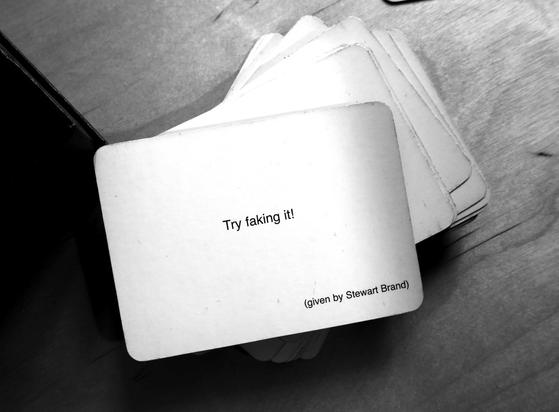We are seeing the decline of the big centralised social media platforms into a toxic skipfire:
Misinformation
Hate speech
Clickbait and rage
Intrusive and weird ads
Rollback of fact checking
But don't give up hope.
There is an opportunity to build something better...
Technologist, writer, who is fascinated by how new politics impacts technology and vice versa. #fedi22 #indieweb #fediverse
How this awkward "number two" CEO role at OpenAI may play out...
https://spyglass.org/openai-two-ceos/
«Hey, we saw you from across the bar and we dig your personal data, mind if we invade?»
Added a time for community announcements at #FediForum on Jun 5. fediforum.org/2025-06/
The GOP budget bill is 1,116 pages long but it boils down to this one simple fact:
Republicans are facilitating a massive transfer of wealth to the richest Americans while making cuts that would rip away healthcare and food from millions of people.
It's Robin Hood in reverse.
We're ready for Microsoft Recall and the automatic screenshots it takes of everything on your desktop.
Signal Desktop on Windows now includes support for a new "Screen security" feature designed to block screenshots of your Signal chats.
#Google putting wrong medical advice in their #AI Overviews.
This is not funny. It is not acceptable. Today I saw someone who had asked a health-related question to Google Search. The AI Overview presented mixed-up, wrong information. I urged the person to ignore the AI Overview and use the regular site links.
They didn't know there were any regular site links, because the AI Overview filled essentially their entire window and they didn't know to scroll down. This is a common situation with busy, nontechie users.
They have depended on Google to point them at accurate information for so many years, and now Google Search spews out convincing looking AI garbage. This is not an anomaly.
Google's AI Overviews are full of wrong, partially wrong (even more dangerous!), and just plain misinformation. Answers that are completely reversed from supposed source pages because the AI didn't understand the wording. Measurements wrong. Math wrong.
It doesn't matter how often AI Overviews are correct, because you NEVER KNOW when they're going to be wrong, either completely or partly (again, mixing true with false -- like contaminating a well).
And now Google is trying to convince users to use "AI Search" instead -- "Hey Ma', no more list of blue links!" -- making it even harder to see that so many of their answers are, if you'll excuse the expression, bulls*it, sometimes dangerous as well.
This is unconscionable. Frankly, whether Google understands this or not, this behavior is uncaring and evil. Apparently Google's leadership no longer feels any shame at all. Disgusting.
If you're lucky, one day, you might meet someone you want to spend your life with, and they will load the dishwasher in a radically different way than you.
198 Methods of nonviolent action
Albert Einstein Institute, Gene Sharp- "Practitioners of nonviolent struggle have an entire arsenal of “nonviolent weapons” at their disposal. Listed below are 198 of them, classified into three broad categories: nonviolent protest and persuasion, noncooperation (social, economic and political), and nonviolent intervention."
The DNI is a possibly a cult member. The head of the FBI is a conspiracy theorist. Deputy director too. Secretary of HHS is a full-blown crank with a brainworm. SecDef is a drunk, SecState is a lapdog. The DOGE guy, well…
This is the guy who hired them. He still pretends he got elected in 2020.
RE: https://bsky.app/profile/did:plc:clxs5bimkdx2zvxzrbs6v3pw/post/3lppghj5ihc2u
Teeth first evolved as sensory tissue in the armored exoskeletons of ancient fish, fossil scans find https://phys.org/news/2025-05-teeth-evolved-sensory-tissue-armored.html #science
In case you needed a playbook for responding to would-be dictators. From the NYT:
"The funny thing is that there’s a playbook for overturning autocrats. It was written here in America, by a rumpled political scientist I knew named Gene Sharp. While little known in the United States before his death in 2018, he was celebrated abroad, and his tool kit was used by activists in Eastern Europe, in the Middle East and across Asia. His books, emphasizing nonviolent protests that become contagious, have been translated into at least 34 languages."
“I would rather have this book than the nuclear bomb,” a former Lithuanian defense minister once said of Sharp’s writing."
"A soft-spoken scholar working from his Boston apartment, Sharp recommended 198 actions that were often performative, ranging from hunger strikes to sex boycotts to mock funerals."
“Dictators are never as strong as they tell you they are,” he once said, “and people are never as weak as they think they are.”
"The Democrats’ message last year revolved in part around earnest appeals to democratic values, but one of the lessons from anti-authoritarian movements around the world is that such abstract arguments aren’t terribly effective. Rather, three other approaches, drawing on Sharp’s work, seem to work better."
"The first is mockery and humor — preferably salacious."
"Wang Dan, a leader of China’s 1989 Tiananmen Square democracy demonstrations, told me that in China, puns often “resonate more than solemn political slogans.”
"The Chinese internet for a time delighted in grass-mud horses — which may puzzle future zoologists exploring Chinese archives, for there is no such animal. It’s all a bawdy joke: In Chinese, “grass-mud horse” sounds very much like a curse, one so vulgar it would make your screen blush. But on its face it is an innocent homonym about an animal and thus is used to mock China’s censors."
"Shops in China peddled dolls of grass-mud horses (resembling alpacas), and a faux nature documentary described their habits. One Chinese song recounted the epic conflict between grass-mud horses and river crabs — because “river crab” is a play on the Chinese term for censorship. It optimistically declared the horses triumphant."
http://nytimes.com/2025/05/21/opinion/authoritarianism-democracy-protest.html
It's okay to go to bed early.
Try faking it! (given by Stewart Brand)
Trump admin tells Supreme Court: DOGE needs to do its work in secret
DOJ complains of "sweeping, intrusive discovery" after DOGE refused FOIA requests.
https://arstechnica.com/tech-policy/2025/05/trump-admin-tells-supreme-court-doge-needs-to-do-its-work-in-secret/?utm_brand=arstechnica&utm_social-type=owned&utm_source=mastodon&utm_medium=social
Google is bringing Ads to its AI mode, because of course.
https://techcrunch.com/2025/05/21/google-is-bringing-ads-to-ai-mode/?utm_campaign=social&utm_source=threads&utm_medium=organic
Trump Cuts Are Killing a Tiny Office That Keeps Measurements of the World Accurate https://www.wired.com/story/trump-cuts-are-killing-a-tiny-office-that-keeps-our-measurements-of-the-world-accurate/ #science
Climate change has sobering effect on wine regions worldwide, but with uneven impacts https://phys.org/news/2025-05-climate-sobering-effect-wine-regions.html #science
The Unlearning of America https://www.theindex.media/the-unlearning-of-america/
How did Noether’s theorem revolutionize physics?
Explore this question and more in this @surf custom feed that brings together posts from Bluesky and Mastodon and YouTube videos, filtered for discussions about physics.
https://surf.social/feed/surf%2Fcustom%2F01jqpn3tnw6ynazhn3ks9phpvf



